Christians Live by Faith in Christ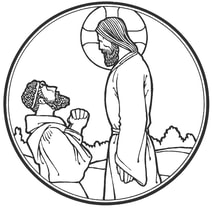
“Cursed is the man who trusts in man,” for all the strength of his flesh is like the grass that fades away (Jer. 17:5). The one who turns away from the Lord may have food and money and laugh for now, but he “shall mourn and weep” in the judgment (Luke 6:24–25). But “the man who trusts in the Lord” is blessed with all that he needs, “like a tree planted by water.” When heat comes, he survives (Jer. 17:7–8). For the Lord has come in the flesh to heal the people of all their diseases, to cleanse their spirits with forgiveness, and to preach the Gospel of the kingdom of God to the poor (Luke 6:18–20). As all of this is by way of His cross, it is solely by faith in the promise of His resurrection that Christians “rejoice” and “leap for joy” (Luke 6:21–23). “If Christ has not been raised,” our faith is in vain and we are most to be pitied (1 Cor. 15:14–19). But, in fact, just as “Christ died for our sins,” so has He also “been raised from the dead” (1 Cor. 15:3, 20).
0 Comments
Jesus Comforts His People By the Gospel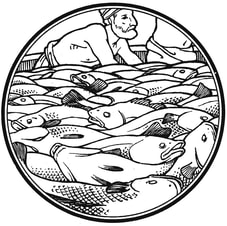
When Isaiah “saw the Lord sitting upon a throne, high and lifted up,” he was overcome with an awareness of his sin and “unclean lips” (Is. 6:1, 5). But the Lord atoned for his sin, took away his guilt and sanctified his lips with “a burning coal” from the altar (Is. 6:6–7). Not only was he rescued from death, but he was called and sent as a prophet of the Lord’s Word (Is. 6:8–9). Similarly, when Simon Peter and his companions “enclosed a large number of fish” at the Word of Jesus, he humbled himself and said, “Depart from me, for I am a sinful man” (Luke 5:4–8). But Jesus comforted Simon, called him to discipleship and declared that he would be “catching men” (Luke 5:10–11). So in the Office of the Ministry, the Church remains the little boat from which Jesus teaches His people (Luke 5:3). Thus are we instructed in the faith, so that we say “Amen” and return thanks with heart, mind, tongue and life. For the preaching of Christ Jesus is a manifestation of the Holy Spirit, by which He builds up His Church on earth (1 Cor. 14:12–19).
Jesus is Lord of All Creation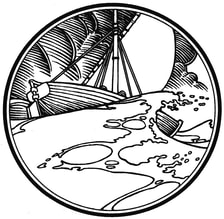
In Jonah we see ourselves. For Jonah fled from the presence of the Lord (Jonah 1:1–17) even as we sinners turn our backs on God and go our own way. This brings the storm of God’s judgment. But in Jonah we also see Christ. For even as he was in the great fish for three days and three nights, so also Christ Jesus was buried in the depths of death for us and raised on the third day. The Lord of creation, who rules over the wind and the wave (Matt. 8:23–27), saved us from the fury of divine wrath by taking the judgment in His own body. His love is the fulfillment of the Law (Rom. 13:8–10). Though our faith be weak in the face of peril, yet we are kept in safety on the ship of the Church; for the Son of God is with us. Though the whole creation groans with us under the curse, yet by Jesus’ speaking, there is a great calm. For we know that our present sufferings are not worthy to be compared with the glory to be revealed in us (Rom. 8:18–23).
Jesus Came for Gentiles, Too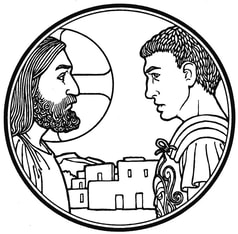
The Gospel of Christ is the power of God to salvation for everyone who believes, for the Jew first and also for the Gentile (Rom. 1:8–17). Even in the Old Testament, the Gentiles were beneficiaries of God’s saving power. Though unimpressed at first with the Word of God, a Syrian commander is persuaded to receive that Word, and in the water he is cleansed and brought to faith in the God of Israel (2 Kings 5:1–15a). Evil is overcome by good (Rom 12:16–21). So also in the New Testament, a Roman centurion demonstrates great and humble faith in the Lord (Matt. 8:1–13). All he needs is the Word of Christ, for he trusts that Jesus’ Word of healing has authority to accomplish what it says. And indeed it does. The centurion’s faith is praised by our Lord above that of any Israelite. For the last shall be first, and the first last. Apart from faith in Christ, there is no salvation—not even for a Jew—but only weeping and gnashing of teeth.
Jesus' First Miracle Reveals God's Glory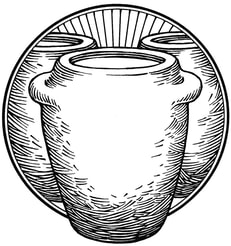
The coming of the Messianic kingdom means the restoration of creation. The sign of this restoration is that “the mountains shall drip sweet wine” (Amos 9:11–15). When the elements of a fallen creation fail and run short at a wedding feast, our Lord Jesus steps in to restore creation and miraculously changes water into an abundance of the very best wine (John 2:1–11). With this sign, Christ manifests His glory. The “back” of God (Ex. 33:12–23) is revealed to those who believe. The hour will come when Jesus will again manifest His glory by taking creation’s curse into His own body to release us from its power. The Bridegroom will give His life for the Bride (Eph. 5:22–32), and from His side will flow water and blood, the holy sacraments by which she is cleansed and made one with Him. Through this sacrificial love of Christ we are enabled to “love one another with brotherly affection . . .” and to “outdo one another in showing honor” (Rom. 12:6–16).
In His Baptism, Jesus Takes His Place with Sinners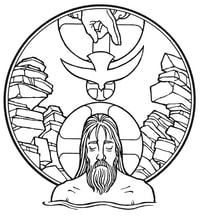
Our Lord Jesus is baptized “to fulfill all righteousness” (Matt. 3:13–17). He partakes of a baptism for sinners in order that He might be our substitute and bear the judgment we deserve. In the water, Jesus trades places with us. Our sin becomes His sin. His righteousness becomes our righteousness. Our glory, therefore, is in “Christ Jesus, who became to us...righteousness and sanctification and redemption” (1 Cor. 1:26–31). Jesus is the “chosen” One sent from the Father to release us from the prison house of sin and death (Is. 42:1–7). Baptized into Christ, we also become the chosen ones, beloved of the Father. We cross the Jordan with Jesus (Joshua 3) through death into the promised land of new life with God.
In His Baptism, Jesus Takes His Place with Sinners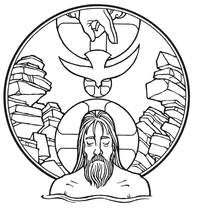 Our Lord Jesus is baptized “to fulfill all righteousness” (Matt. 3:13–17). He partakes of a baptism for sinners in order that He might be our substitute and bear the judgment we deserve. In the water, Jesus trades places with us. Our sin becomes His sin. His righteousness becomes our righteousness. Our glory, therefore, is in “Christ Jesus, who became to us…righteousness and sanctification and redemption” (1 Cor. 1:26–31). Jesus is the “chosen” One sent from the Father to release us from the prison house of sin and death (Is. 42:1–7). Baptized into Christ, we also become the chosen ones, beloved of the Father. We cross the Jordan with Jesus (Joshua 3) through death into the promised land of new life with God.
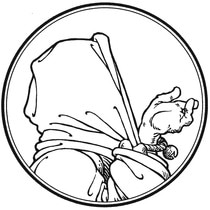 In both his rule over our history and in his answer to our prayers it is axiomatic: the greater the affliction that he permits, the greater his risk that we will fall into despair. The greater his blessings in answer to our prayers, the greater the risk that we will forget him and become arrogant. What afflictions have we had that were great blessings because they drove us to our knees in trusting prayer instead of despair? How many times when he answered did we forget the Giver in the enjoyment of the gift?
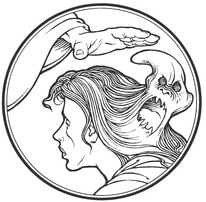 Look at all the problems and all the obstacles to following the call of Jesus. Everybody in town seemed to have trouble or sickness or demon possession. Even the mother-in-law of Peter was down sick with a fever that prevented her from hearing the Word and from serving her divine Guest. But each and every one of the problems and hindrances was a blessing in disguise. For each one of them gave people a reason to despair of their own abilities and to seek in Jesus the compassionate and merciful Savior. It is very useful for us to put our own problems and hindrances to following Jesus in this perspective: trials spur us to seek his help; his help should spur us to service. Jesus’ eyes were always and at the same time in two directions: down to rescue and to save us in our need, and up to do it all as an act of worship and obedience to his Father. He prayed. Then he went on to proclaim the gospel and continue his work of casting out the devil.
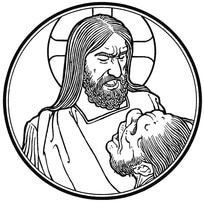 Why follow him? Jesus shows his glory by his triumph over the devil. In his own day he sometimes did that openly for many to see. He still does it just as effectively but in a less public, less obvious way. Just as his victory made manifest his glory then, so it does now. Just as then, so now, everything is accomplished through his Word.
|
Archives
February 2019
Categories
All
|
||||||||||||||||||||||||||||||||||||||||||||||||||||||||||||

 RSS Feed
RSS Feed
